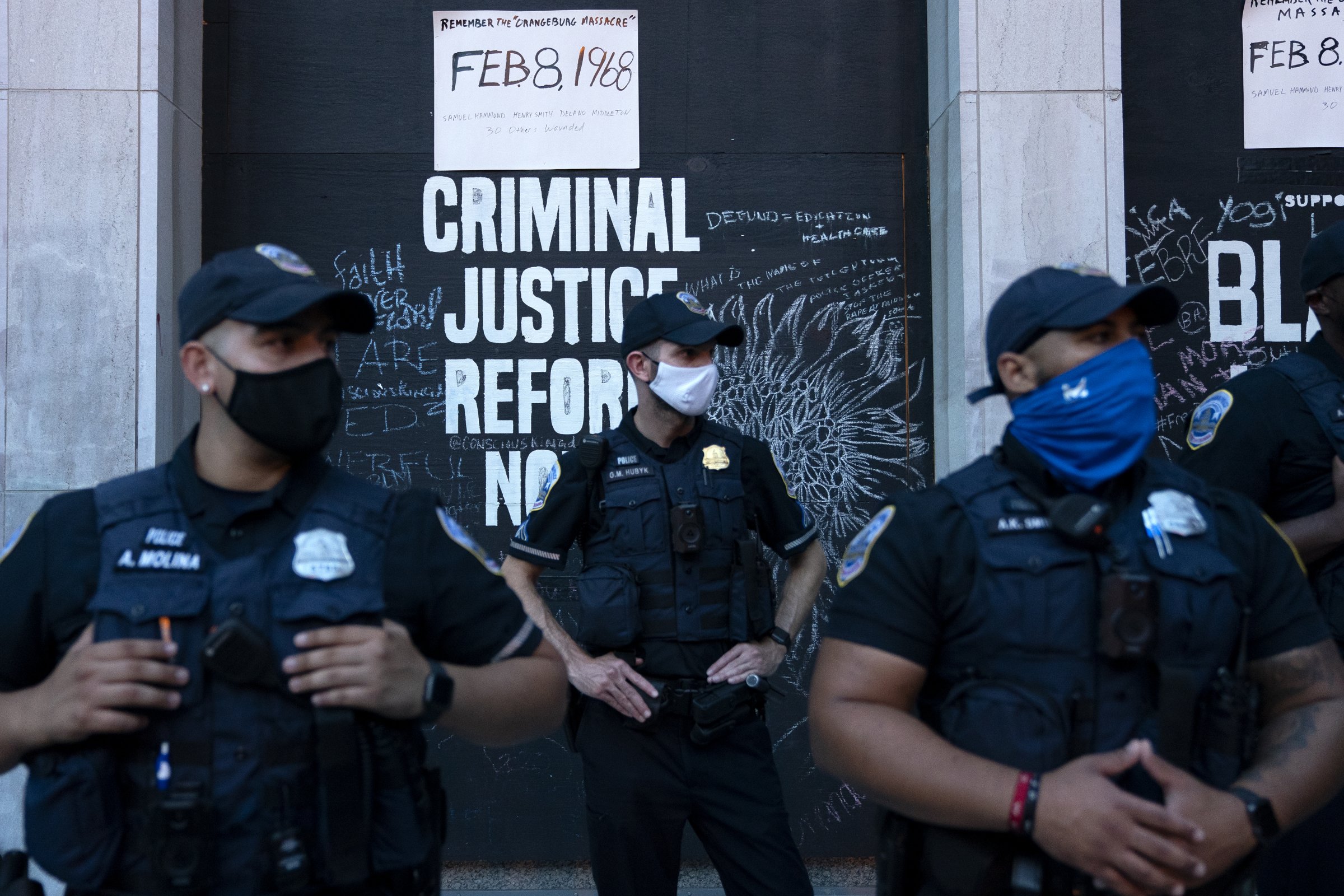
In a victory for criminal justice advocates, U.S. voters approved sweeping measures that will restore voting rights to tens of thousands of people on parole, reign in the power of several big-city police departments and ease drug laws.
Advocates of reform did see some setbacks in Tuesday’s election, including the failure in California of an attempt to end the cash bail system, which opponents say hurts the poor. About 55% of voters opposed the measure, according to the Associated Press. Another controversial initiative in Oklahoma, which would have banned prosecutors from using prior felony convictions to enhance sentences for nonviolent crimes, also failed to pass.
But about a dozen other criminal justice referendums were overwhelmingly approved, according to Lauren-Brooke Eisen, director of the Brennan Center’s Justice Program, a rare show of voter cohesion in balloting that exposed polarization in most major national races.
“Criminal justice reform gained momentum last night,” Eisen says.
The victories followed months of demonstrations aimed at calling attention to racism and brutality in law enforcement—protests that President Donald Trump cited as evidence of “anarchy” as he portrayed himself as a law-and-order candidate in the presidential race.
Among the biggest victories was the passage of Proposition 17 in California, which allows about 50,000 people on state parole to vote after completing their prison sentences. Advocates say the change will reduce recidivism, expand democracy and inject more fairness into the justice system.
“We just changed history,” says Shay Franco-Clausen, who led the grassroots “Yes on Prop 17” advocacy campaign. The 45-year-old mother says she woke up Wednesday with puffy eyes after crying tears of “pure happiness” all night. She pictured most of her friends and her brother being able to cast ballots again.
“When they vote,” she says, “they’ll be part of something bigger than the mistake they made.”
In another momentous change, New Jersey, Arizona, South Dakota and Montana voted to legalize recreational marijuana, and Oregon became the first state to decriminalize small amounts of cocaine, heroin and other drugs. The new drug reform laws, supporters say, will reduce the number of people sitting in jails and prisons for low-level drug offenses.
“Keeping people out of the system is really important because we know mass incarceration doesn’t work,” Eisen says. “Every sort of additional way that you bring someone into the system could be another trap that makes it harder for them to ever leave.”
On the heels of widespread protests following the May 25 killing of George Floyd at the hands of Minneapolis police, Nebraska, Utah and Alabama voted to erase racist language from their state constitutions. Voters in Nebraska and Utah approved removing the use of language allowing “slavery” and “involuntary servitude” as criminal punishments. Alabama voters approved an amendment to drop archaic language that had mandated racial segregation in some institutions, including public schools.
Pushes for more police accountability were successful in San Francisco and San Diego, where voters said yes to creating commissions to oversee local law enforcement departments. Meanwhile, voters in Pittsburgh, Portland, Ore. and Columbus, Ohio favored measures that would create or expand civilian-run police oversight boards.
In Michigan, voters overwhelmingly approved a state constitutional amendment that limits police powers by requiring law enforcement officers to obtain a search warrant before accessing electronic data.
Eisen says Tuesday’s show of support for social reform, including police oversight, is a sign that Americans recognize inequities in the criminal justice system. “We’re really seeing significant successes for more accountability for local police departments, and that’s really, really important,” Eisen says. “This is all part of the bigger picture.”
The nation took a step forward by approving a wave of changes, Eisen says. But with 2.2 million people behind bars, more than 4.5 million on probation and parole, and millions cycling in and out of jails every year, she says more change is needed.
“While we’ve seen some wins for criminal justice reform,” she says, “there’s still too much work to do.”
More Must-Reads from TIME
- Cybersecurity Experts Are Sounding the Alarm on DOGE
- Meet the 2025 Women of the Year
- The Harsh Truth About Disability Inclusion
- Why Do More Young Adults Have Cancer?
- Colman Domingo Leads With Radical Love
- How to Get Better at Doing Things Alone
- Michelle Zauner Stares Down the Darkness
Contact us at letters@time.com